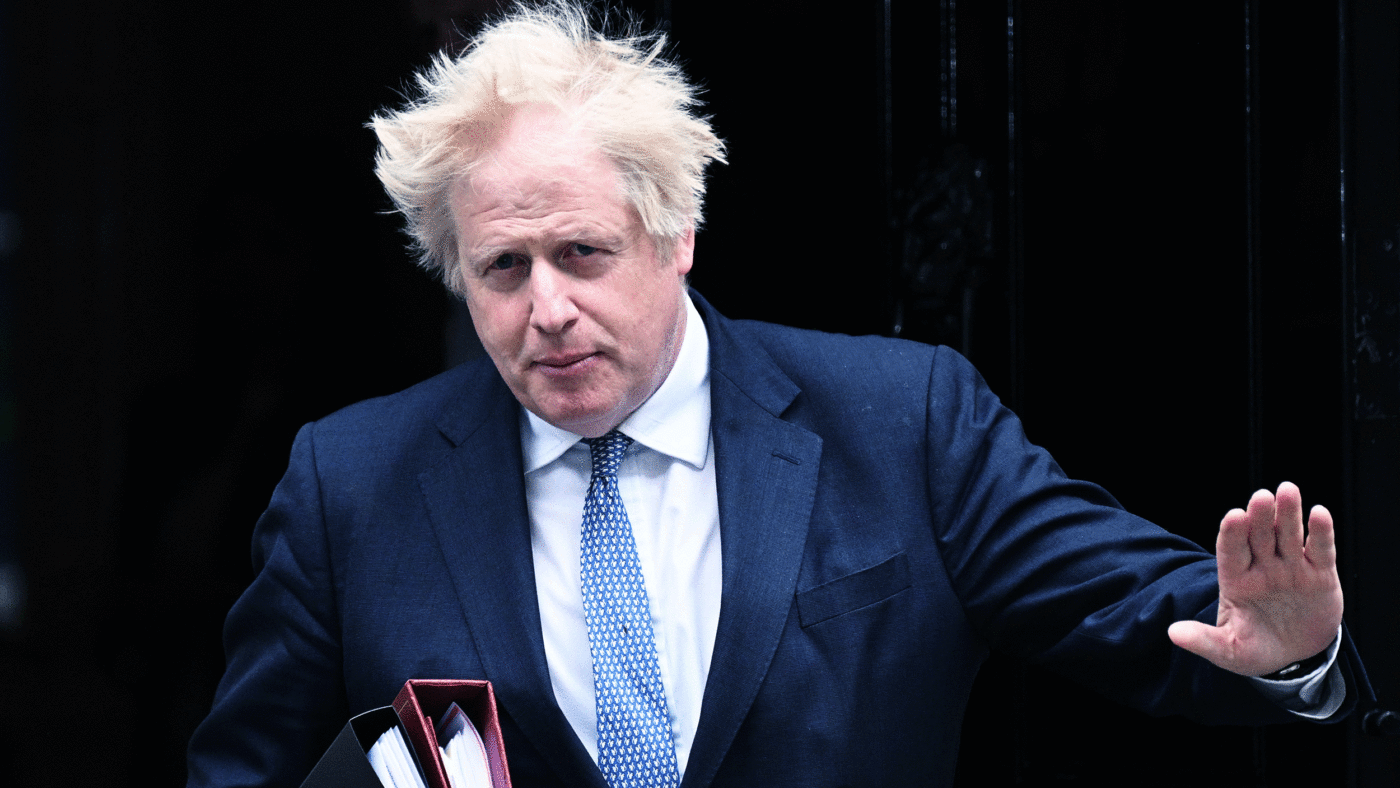Anything that’s had this much hype was bound to be disappointing. For months, ministers have been telling us that we must await the Sue Gray report like it was the opening of the seventh seal. In the end it was less Revelation than a bunch of stuff we already knew.
Yes, there’s more detail about the nature and scale of rule-breaking that went on in Downing Street during lockdown. Gray gives narrative accounts of 16 separate gatherings of various sizes, some of which involved heavy drinking, vomiting, karaoke, red wine splattered up walls and broken swings. It’s clear from emails and messages that these events were pre-arranged and that concerns about their advisabilty were raised at the time. There is a particularly damning message from Martin Reynolds, the Prime Minister’s Private Secretary, concerning the notorious ‘bring your own booze’ garden party which says ‘we seem to have got away with [it]’. But none of this is really news.
The hotly anticipated photos are unutterably bleak – all Tesco prosecco, limp sandwiches and polystyrene takeaway containers. It’s a comfort to know that if staff were partying while the rest of us were protecting the NHS, at least they were having a terrible time.
This whole affair has been a reminder, if such a thing were needed, of the tired cliche that a week is a long time in politics. When allegations of lockdown breaches in Downing Street were first made last November, the public outrage was palpable and letters demanding a No Confidence vote were reportedly thudding onto Graham Brady’s doormat. We were speculating on these pages over the likelihood of Boris Johnson’s resignation, and even Ant and Dec, not usually known for political satire, were mocking the Prime Minister.
Since then, a police investigation, the war in Ukraine and the mounting cost of living crisis have intervened to make this all feel rather tawdry and irrelevant. The sheer length of time this has taken has allowed Johnson to restructure the Downing Street operation and remove many of the individuals he knew were likely to be implicated. Ministers have spent countless broadcast rounds talking up Sue Gray’s ‘independence’ and ability to act ‘without fear nor favour’ in an effort to ensure that this report draws a line under the whole business.
MPs who’ve been hiding behind the process will now come under pressure to endorse Johnson’s leadership or challenge it – but at the time of writing it doesn’t feel like there’s much momentum behind campaigns to unseat him. That of course could change.
But if the publication of this report has proved something of a damp squib, that doesn’t mean it doesn’t matter.
For a start, the Met police – hardly the nation’s most trusted institution right now – surely have questions to answer. The Mayor of London, Sadiq Khan has written to the Commissioner asking for a ‘detailed explanation’ of its inquiry. But while such arbitrary decisions are perhaps understandable given the labyrinthine nature of the rules themselves, what’s more concerning is the way an essentially political row was turned into a criminal one in the first place.
Few would deny that if Sue Gray’s report had been published earlier in the year, when the depredations and sacrifices of the lockdown were fresher in people’s minds, it would have had a far greater impact. Gray says that the police’s intervention prevented her from making a more thorough investigation of a party that occurred in the Downing Street flat, potentially one of the most egregious of the events involved. Months of delay have taken the wind out of the sails of this scandal. After all, a Coronavirus Fixed Penalty Notice is little worse than a speeding fine. The breaches of the law involved here are far less significant than the betrayal of public trust they represent.
And that’s where the biggest risk to this administration now lies. The painfully slow acid drip of ‘partygate’ has corroded faith in its leadership, its decision-making and its strategic judgment. A boozy stench has contaminated everything the Government has tried to do in 2022, and left it vulnerable to the accusation that any policy is a ‘dead cat’ to distract from this debacle.
Instead of obsessing over who drank what when, and which of the byzantine Covid regulations was in place at the time, we should be talking about the real difficulties families are facing now. The pandemic has harmed the educational prospects of a generation of children and left the poorest families even less able to cope with the current crisis than they might otherwise have been.
Sue Gray now hands the baton to Chris Bryant’s Privileges Committee, who will consider whether the Prime Minister broke the ministerial code by misleading parliament. Perhaps then Boris will face his Final Judgment. But until he does, to paraphrase Martin Reynolds, he seems to have gotten away with it.
Click here to subscribe to our daily briefing – the best pieces from CapX and across the web.
CapX depends on the generosity of its readers. If you value what we do, please consider making a donation.


